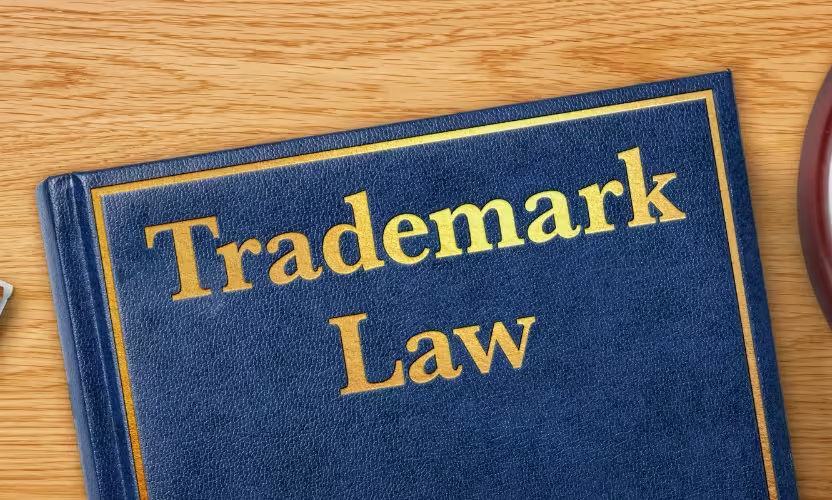
Trademark Registration in India

Introduction
In today’s competitive business environment, a brand name is more valuable than physical assets. Whether you are a small business owner, a startup, or an established company, your brand name, logo, or tagline becomes the identity of your business. Protecting that identity through trademark registration is not only a legal necessity but also a strong business strategy.
In India, trademarks are governed by the Trade Marks Act, 1999, which provides the legal framework for registration, protection, and enforcement. Registering your trademark ensures that no other business can legally copy, misuse, or misrepresent your brand.
This blog will provide you with a detailed guide to trademark registration in India—including its meaning, benefits, process, costs, challenges, and frequently asked questions—so that you can understand why trademarks are crucial for brand success.
A trademark is a recognizable sign, symbol, word, phrase, logo, design, or combination of these that distinguishes your goods or services from those of competitors.
In simple terms:
Apple’s logo = a trademark for technology products.
Nike’s “Just Do It” tagline = a trademark for sportswear.
Amul = a trademark in the dairy industry.
Trademarks give your business a unique identity in the market and help customers associate quality, trust, and reputation with your products or services.
Registering your trademark in India provides several legal and commercial benefits:
Legal Protection – Once registered, you get exclusive rights to use your brand name/logo. Any misuse by others can be legally challenged.
Business Identity – A trademark makes your brand recognizable and builds trust among consumers.
Asset Creation – A registered trademark is considered an intangible asset that can be sold, licensed, or franchised.
Brand Value – It enhances goodwill and strengthens your market presence.
Deters Copycats – Registration prevents competitors from copying or misusing your brand name.
International Recognition – A registered trademark in India helps in filing trademarks in other countries under international treaties like the Madrid Protocol.
Trademark registration is open to:
Individuals – Even if you don’t own a company, you can register your personal brand.
Startups and MSMEs – To protect logos, names, or taglines at the early stage.
Companies – Private limited, LLPs, and corporations.
Partnership Firms – Business partners registering under their firm’s name.
Proprietorships – Small business owners.
Anyone planning to create a unique brand identity can apply for a trademark.
There are different categories of trademarks that businesses can register:
Word Mark – A name, word, or text (e.g., TATA, RELIANCE).
Logo / Device Mark – A graphical representation or logo (e.g., Apple’s half-bitten apple).
Tagline / Slogan – Catchphrases (e.g., “Taste the Thunder” by Thums Up).
Product Shape – Unique shapes of goods (e.g., Coca-Cola bottle).
Sound Mark – Sounds associated with a brand (e.g., Nokia tune).
Color / Combination – Distinctive color schemes.
Three-Dimensional Marks – 3D logos, product shapes.
Before filing a trademark, you must choose the right class under which your goods or services fall.
There are 45 classes in total:
Classes 1–34 → Goods (e.g., Class 3 for cosmetics, Class 30 for food items).
Classes 35–45 → Services (e.g., Class 35 for business consultancy, Class 44 for healthcare services).
Example:
If you are opening a restaurant, you must file under Class 43.
If you are launching a clothing brand, you must file under Class 25.
Choosing the right class is crucial to ensure proper protection.
The documents vary based on applicant type:
Identity proof (Aadhar, PAN, Passport, etc.)
Address proof
Logo (optional, but recommended)
Signed TM-48 Form (Power of Attorney)
Partnership deed or LLP agreement
Identity proof of partners
Business address proof
For Companies (Pvt Ltd / Ltd)
Certificate of Incorporation
Company’s PAN cardIdentity proof of directors
Logo (if applicable)
The process of registering a trademark in India involves several stages.
Before filing, conduct a trademark availability search on the IP India website to ensure your brand name/logo is not already registered.
2. Filing the Application
File your application online through the Trademark Registry portal or offline at the relevant office. You will receive an acknowledgment number immediately.
3. Examination
The Trademark Examiner reviews the application to check compliance with the Trade Marks Act, 1999.
If accepted, it moves forward.
If objections arise (under Section 9 or 11), a reply must be filed.
4. Publication in Trademark Journal
If accepted, your mark is published in the Trademark Journal for 4 months.
If no opposition is filed → it proceeds to registration.
If opposition is filed → a legal hearing takes place.
Once approved, the Registrar issues a Trademark Registration Certificate. You can then use the ® symbol with your brand.
Trademark fees depend on the applicant type:
Individuals / Startups / Small Enterprises: ₹4,500 per class (online filing).
Companies / Others: ₹9,000 per class (online filing).
Professional/legal fees are additional depending on the consultant or lawyer handling your case.
Time Taken for Trademark Registration
On average, the entire process takes 12–18 months, provided there are no objections or oppositions.
Filing acknowledgment: Immediate
Examination: 1–3 months
Publication: 4 months
Registration: 8–12 months
Similarity with an existing trademark.
Descriptive or generic names (e.g., “Best Soap” cannot be registered).
Lack of distinctiveness.
Incorrect classification.
Failure to respond to objections on time.
Hiring an experienced trademark lawyer helps avoid these mistakes.
Expert advice on correct classification.
Drafting strong responses to objections.
Representing clients in opposition hearings.
Monitoring trademark misuse.
Helping with international trademark filing.
If you want global brand recognition, you can file under the Madrid Protocol, which allows protection in over 120 countries with a single application.
A registered trademark is valid for 10 years from the date of filing.
-
It can be renewed indefinitely every 10 years by paying renewal fees.
-
If not renewed, the trademark may be removed from the register.
AMUL – Strong protection against misuse across dairy and FMCG sectors.
TATA – A name trusted for decades, registered across multiple classes.
ZOOMCAR vs. Zoom Video – Example of brand disputes across industries.
FAQs on Trademark Registration in India
1. Can I use ™ without registration?
Yes, ™ can be used once you file your application. The ® symbol can be used only after successful registration.
2. Is trademark registration mandatory in India?
Not mandatory, but strongly recommended to protect your brand legally.
3. Can two companies have the same trademark?
Only if they operate in different classes of goods/services and are not likely to confuse customers.
4. What happens if my trademark is opposed?
You must file a counter-statement and attend hearings. If you win, your mark proceeds to registration.
5. Can I transfer or sell my trademark?
Yes, trademarks are intellectual property assets and can be assigned or licensed.
Conclusion
In India’s fast-growing market, trademark registration is not just legal compliance—it is brand survival. It secures your unique identity, builds consumer trust, and protects against unfair competition.
Whether you are a startup or an established business, investing in trademark registration is a step toward long-term brand protection and value creation.
